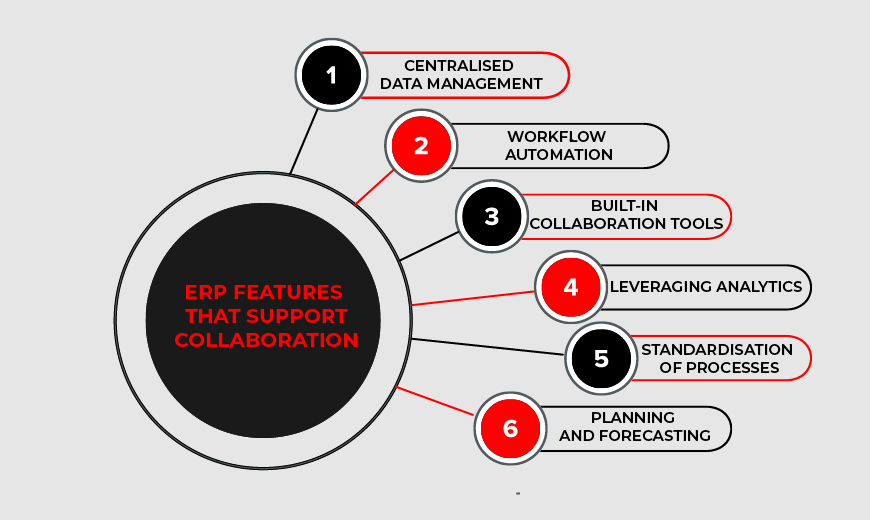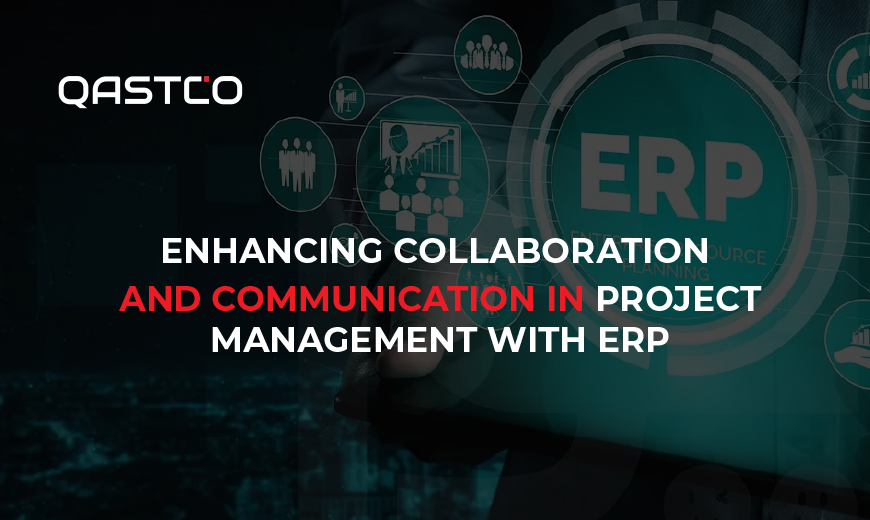Collaboration and communication are the essence of producing an ERP project plan and implementation strategy. This category of stakeholders is an essential component of the execution process that needs to be functional and harmonious. Project collaboration is about teamwork which is required for the project completion, thus combining the strengths and energies of the group in the process. In like manner, effective communication not only saves time but also prevents losses. As a result, it improves smart project decisions which helps in reduction and avoidance of losses.
PMI found that 71 percentage points are reached by collaborative project management facilities from average success rate. In addition, 86% of organisations and business owners believe that poor communication create most issues at workplace (Webinarcare.com). Moreover, 37% of employees have ensured their job satisfaction by working with a great team (Bit.ai). This data reinforces the critical significance of teamwork and communication in project management. These ERP software ensure completion of project by the schedule. And they also make the work environment enjoyable, causing employees to stay in an organisation for a long period.
This is the reason ERP project management plays such an important role in organising the interaction of subdivisions and different levels of the company.
.
ERP Features that Support Collaboration
Collaboration is one of the most important aspects of business today since looking at the business from an individual level within a team is an important factor in the development of a business strategy.
ERP project management by providing a range of predisposed features enables project team members to work together and communicate without any hindrance. Such software support operations carried out in the framework of projects and communicate in better ways in the work environment.
Get a Free Consultation to discover an affordable project management solution.

Centralised Data Management:
A management of ERP project helps in achieving a centralised data management system. This system contains information of different departments of production. This information empowers project teams to see and use their project data from a single source. Be it the documents, performance metrics, reports, and analytics all can be access from a single software. Thus centralization of Data, a new modern approach, keeps employees and other stakeholders interacted. This centralised management enable stakeholders to monitor the progress, provide feedback, and make informed decisions regardless of time zones and location.
Workflow Automation:
ERP project management streamlines a comprehensive and seamless workflow process by automating routine task. Mostly ERP helps in automation operational tasks and describe role-based access to project-related information. This automation reduces error and enable monitoring data status. This data status tracking is done through the transmission of automated reminders, notifications, and progress reports to the relevant persons. This is one of the features that enable communication and cohesion among the team players. As a result all relevant employees remain informed throughout the project and aligned with the final objectives of the project.
Built-in Collaboration Tools:
ERP systems come equipped with various collaboration tools like tools aimed at enhancing communication, team building, and problem solving. These technologies represent an enabling factor for departments to bring into play the collaborative environments that meet the project needs. Options like rapid messaging, document sharing and video conferencing ensure effective collaborations. Synchronising financial information and contractual agreements is possible with the help of these extensions as well, thus the collaboration would be as effective as possible.
Leveraging Analytics:
ERP project management software enables analysis of analytical insights that is obtained for the all-round view of the project starting from the smallest task to its totality. Managers can gain knowledge that will point to the areas in need of improvement. They also decide to allocate the right resources and create the collaborative department’s communication. Analytics-based decision making facilitates two way communication, as it ensures that discussions on the tasks in hand are built on data, guided by the objectives of the project.
Standardisation of Processes:
EPR project management allows the standardisation of processes by facilitating communication and collaboration among staff. The ERP software may achieve this aim by providing a common set of guidelines and a means of measurement that is shared throughout the departments and consequently it becomes likely that there will be no miscommunication. This uniformity boosts cooperation as all parties involved are now able to share a common starting point in the form of a common project objectives and requirements and application of the standards.
Planning and Forecasting
ERP project management support for planning and forecasting through automatically providing access to the critical performance indicators (KPIs), inventory levels, production schedules, and workforce deployment in real time. In other words, the real time data facilitates its end users to take required decisions by changing the resources if needed across departments which moves the development process forward. It also reduces counterproductive efforts and streamlines workflow. That’s how ERP Software maximises collaboration and communication throughout the project lifecycle.Overall, an ERP project management brings about a new style of working together where communication is embedded in all project processes. One of the major advantages of ERP software is its core components like centralised data management, automation of workflows, inbuilt collaboration area, highlights on analytics, standardisation of processes and schedules which enable organisations in working together and communicate without any difficulties, and hence, a successful project will be the end result.


Leave a Reply
You must be logged in to post a comment.